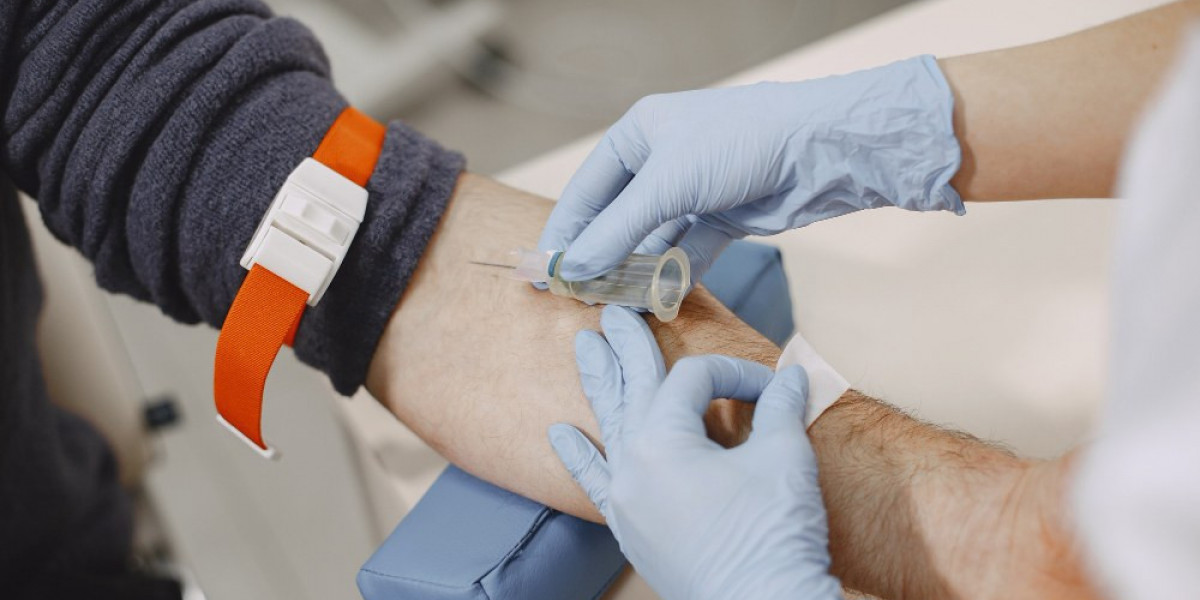Navigating healthcare can feel overwhelming, especially when faced with a potential diagnosis. With so many different types of medical tests available, it’s natural to wonder how to know which test is required for any disease. Understanding how medical professionals determine which tests to order is key to feeling more informed and empowered about your health.
In this article, we’ll explore the factors that doctors consider when choosing the right diagnostic tests, the types of tests available, and how you can advocate for yourself in the process.
Why Diagnostic Tests Are Important
Diagnostic tests are vital tools for doctors to confirm or rule out specific health conditions. These tests from Dr. Essa Lab and Diagnostic Center help provide insight into your symptoms and help guide treatment plans. Whether you're experiencing mild symptoms or serious health concerns, the right test can offer clarity and direction for managing your health.
Diagnostic tests can serve several purposes:
- Confirming a diagnosis – Tests help doctors confirm whether your symptoms are linked to a particular disease.
- Screening for conditions – Some tests are used for early detection of diseases, even before symptoms appear.
- Monitoring ongoing conditions – If you have a chronic condition like diabetes or hypertension, regular tests help monitor your progress and the effectiveness of treatment.
The challenge for many people lies in understanding which tests are necessary and why.
Factors That Determine Which Test is Required
There is no one-size-fits-all approach to choosing medical tests. Healthcare providers rely on several factors to determine the best diagnostic test for your condition. Let’s break down some of the key elements doctors consider:
Symptoms
Your symptoms are often the first clue in deciding which tests are needed. For example, if you’re experiencing persistent cough and shortness of breath, your doctor may consider tests related to respiratory issues, such as a chest X-ray or pulmonary function tests.
In contrast, symptoms like chest pain or unexplained fatigue might lead your doctor to order tests for heart function, such as an electrocardiogram (ECG) or blood tests to check for cardiac markers.
Medical History
Your personal medical history plays a huge role in determining which tests are required. If you have a family history of certain conditions, like diabetes, heart disease, or cancer, your doctor may recommend specific screening tests to check for early signs of these diseases.
For example, if your family has a history of colon cancer, your doctor may suggest regular colonoscopies earlier than usual to detect any abnormalities early.
Physical Examination
A physical examination provides additional context for what type of tests may be necessary. During the examination, your doctor will check for visible or palpable signs of illness—such as swelling, abnormal skin changes, or lumps—that can point to a specific diagnosis.
For example, if your doctor feels a lump during a routine breast exam, they may recommend a mammogram or ultrasound to get a clearer image.
Risk Factors
Your lifestyle and environmental factors can also influence which tests are required. People who smoke, for example, are more likely to be recommended for lung function tests or CT scans to check for lung disease. Similarly, if you have a sedentary lifestyle and a poor diet, your doctor may order cholesterol tests or blood sugar level checks to assess your risk for cardiovascular disease.
Age and Gender
Certain tests are recommended based on age and gender. Women over 40 are typically advised to have regular mammograms to screen for breast cancer, while men over 50 might be recommended for a prostate exam. As we age, other tests, like bone density scans, become more important to screen for conditions like osteoporosis.
Test Sensitivity and Specificity
Doctors also consider the effectiveness of a test in diagnosing specific conditions. Some tests are more sensitive or specific for certain diseases than others. Sensitivity refers to the test’s ability to correctly identify those with the disease, while specificity refers to its ability to correctly identify those without the disease.
For example, if a doctor suspects you have a bacterial infection, they may choose a specific type of blood culture known for its high sensitivity in detecting the presence of bacteria.
Types of Diagnostic Tests
With so many types of tests available, it’s helpful to understand the main categories of diagnostic tests your doctor may recommend:
Blood Tests
Blood tests are among the most common diagnostic tools and can provide a wealth of information about your health. They can check for everything from infections to chronic conditions like diabetes, liver disease, or anemia.
Some common blood tests include:
- Complete Blood Count (CBC) – Assesses your overall health by checking for anemia, infection, or other blood disorders.
- Liver Function Test (LFT) – Measures how well your liver is functioning and can detect liver disease.
- Lipid Profile – Measures cholesterol levels to assess your risk of heart disease.
Imaging Tests
Imaging tests help doctors see inside your body and are essential for diagnosing conditions that can’t be detected through blood tests alone.
- X-rays – Often used to check for fractures, pneumonia, or other lung conditions.
- Ultrasound – Commonly used to examine organs, blood flow, and soft tissues.
- MRI and CT Scans – Provide detailed images of your internal structures and are often used to detect tumors, blood clots, or internal injuries.
Biopsies
A biopsy involves removing a small sample of tissue from your body for analysis. This test is often used to check for cancer or other abnormal cells. Depending on the area being examined, different types of biopsies may be performed, such as needle biopsies or surgical biopsies.
Genetic Testing
Genetic tests analyze your DNA to determine if you are at risk for certain inherited conditions. These tests can help predict your likelihood of developing diseases like breast cancer, cystic fibrosis, or Huntington’s disease. Genetic testing is especially helpful if you have a strong family history of a particular disease.
Stress Tests
A stress test measures how your heart works during physical activity. It's often used to diagnose heart conditions, such as coronary artery disease, by monitoring how your heart responds to exertion.
How to Advocate for the Right Test
It’s important to remember that while doctors have the expertise to guide you through diagnostic testing, you also have a role in the process. Here are some tips for advocating for the right tests:
Ask Questions
Don’t hesitate to ask your doctor why a particular test is being recommended. Understanding the purpose of the test and how it fits into your overall health plan can help you feel more involved in your care.
Questions like, “What will this test show?” or “Are there any risks involved?” can provide clarity and peace of mind.
Share Your Concerns
If you’re worried about a particular health condition or feel that your symptoms aren’t being fully addressed, make sure to speak up. Sharing your concerns can prompt your doctor to consider additional tests or alternative options that might not have been on the radar initially.
Get a Second Opinion
If you're uncertain about the necessity of a test or feel uneasy about the results, seeking a second opinion from another healthcare provider can help confirm whether the recommended tests are appropriate.
When to Seek Immediate Testing
While many tests can be scheduled at your convenience, there are certain symptoms that should prompt you to seek immediate testing:
- Severe chest pain – This could be a sign of a heart attack, and immediate tests like an ECG or blood tests for cardiac markers are necessary.
- Difficulty breathing – May indicate a respiratory issue that requires urgent imaging tests like a chest X-ray.
- Sudden, severe headache – Could be a sign of a stroke or brain aneurysm, and a CT or MRI scan should be done immediately.
Conclusion
Knowing which test is required for any disease is a complex decision that involves multiple factors, including your symptoms, medical history, risk factors, and the type of condition being investigated. By working closely with your doctor, asking the right questions, and staying informed about your health, you can feel confident that you’re receiving the right care for your needs.
Advocating for yourself and understanding the different types of diagnostic tests can help ensure that your health concerns are addressed efficiently and accurately.
FAQs
- Can I request a specific test from my doctor?
Yes, you can ask your doctor about specific tests, but they will ultimately recommend the most appropriate test based on your symptoms and medical history.
- How long does it take to get test results?
It depends on the test. Some, like blood tests, can return results within a few hours, while others, like biopsies, may take several days.
- Are diagnostic tests covered by insurance?
Most diagnostic tests are covered by insurance, but it’s always a good idea to check with your provider beforehand to confirm coverage.
- Can a test be wrong?
No test is 100% accurate. There is always a small chance of false positives or false negatives, which is why doctors often use multiple tests for a more accurate diagnosis.
- How often should I get tested for chronic conditions?
The frequency of testing depends on your specific condition and overall health. Your doctor will recommend a schedule based on your individual needs.















